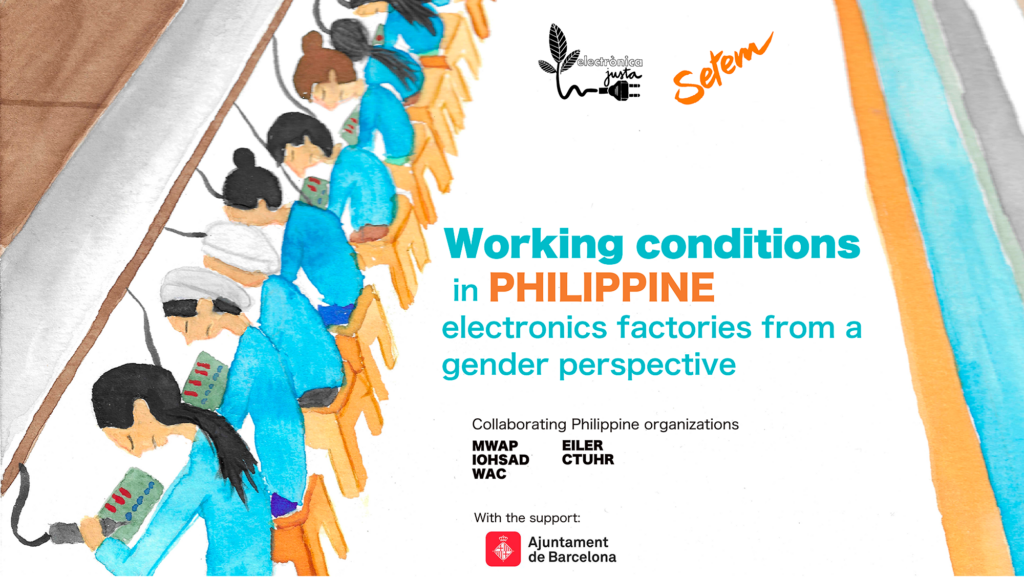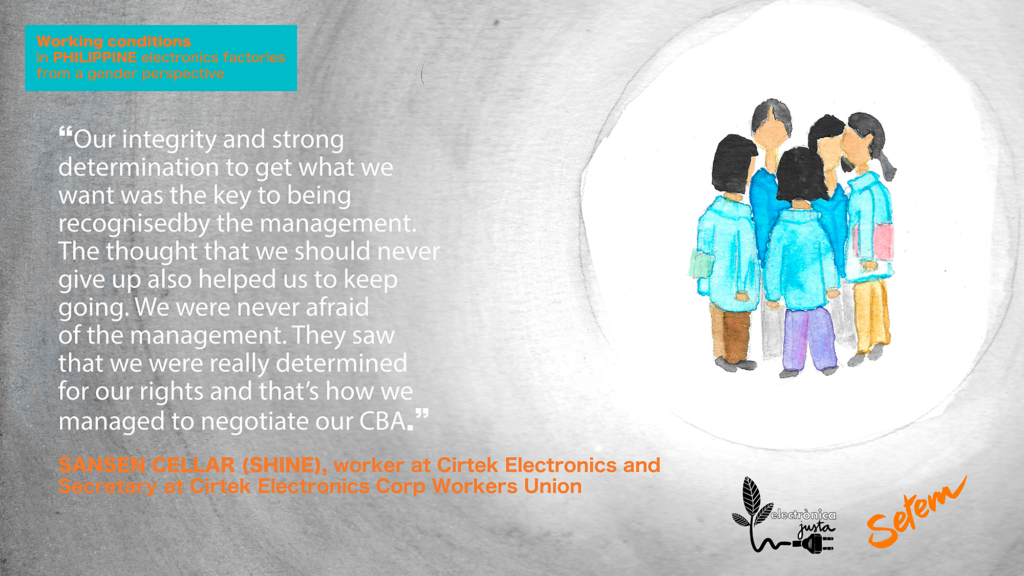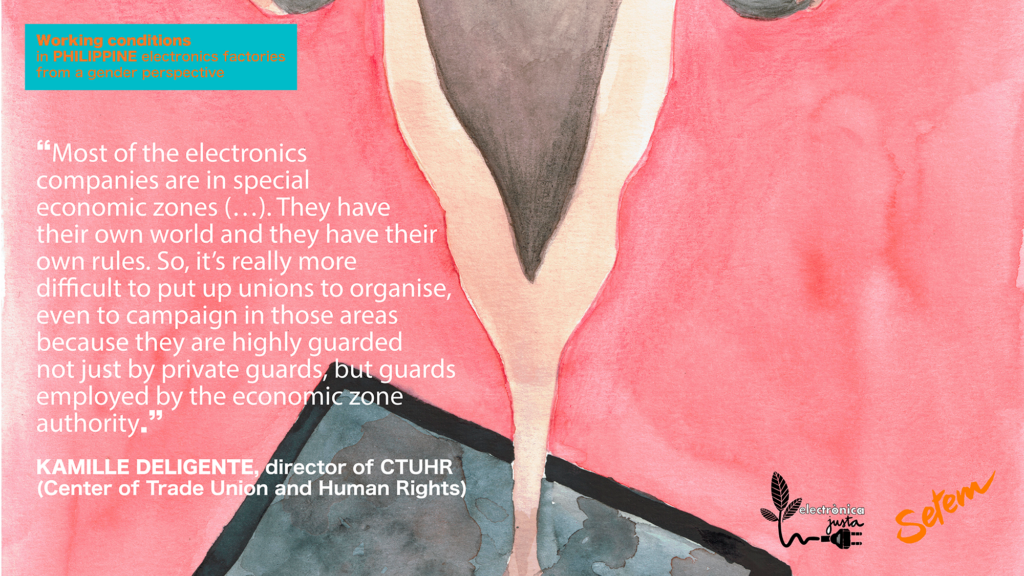This website uses cookies so that we can provide you with the best user experience possible. Cookie information is stored in your browser and performs functions such as recognising you when you return to our website and helping our team to understand which sections of the website you find most interesting and useful.

In this report, we analyse the working conditions electronic products are produced by factory workers in the Philippines. An analysis from a gender perspective, since most of the workers in these factories in the region are women.
The feminization of work in the manufacturing sector has been a global trend in recent decades. The report stresses that working women in electronics factories tend to have less access to education and fewer employment alternatives compared to men, due to the sexual division of labour and gender inequality. Many of them come from rural areas and see paid work in the factory as an attractive option.
Gender-based violence in electronics factories in the Philippines
Most electronics factories in the Philippines are located in the Special Economic Zones, which are governed by rules other than the rest of the country and facilitate companies to violate the rights of workers. The most frequent violations of labour rights include: working hours above the limits established by national law; salaries that do not allow a decent life to be carried out; obligation to do extra hours to maintain the contract; disciplinary dismissals to commit errors or participate in a trade union; exposure to toxic substances without adequate protection and disinformation about the risks associated with the workplace and sexual and gender harassment of working women.


Gender stereotypes and double discrimination
Another factor that has enhanced the feminisation of work in factories is gender stereotypes, whereby women are perceived as workers easier to control and more submissive than men. Women are considered second-class workers, who can be made to work in poorer conditions.
On the other hand, the report highlights how the dimension of reproductive work, assumed mainly by women, interacts with the impacts that the violation of their labour rights has on the lives of these working women. It is they who, to a large extent, take care of work outside the working hours at the factory. This means that they suffer from double discrimination and that the impacts on their lives of violations of their labour rights are different from those suffered by men.
No guarantee of trade union freedom
In the Philippines, only a small number of working people are syndicated. In the electronics sector, the syndication rate is especially low. This is due to the location of most of the industry in special economic areas, which have their own rules and are heavily monitored, not only by private guards, but also by guards employed by the authority of the economic zone.


